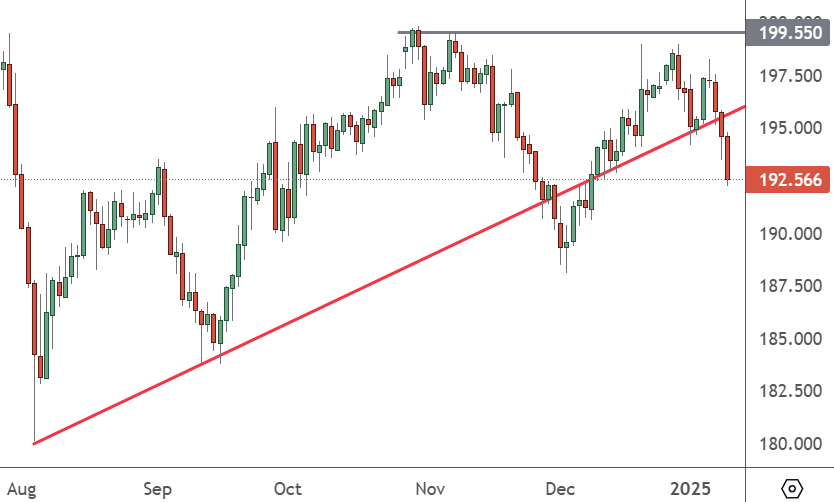EURJPY heads into a Bank of Japan rate decision ahead of the Tuesday Asian session and targets a long-term high near 150.
That level was the last hit in December 2014, before the European debt crisis in Greece engulfed the Eurozone financial system.
EURJPY Weekly Chart

The euro is trading at 145.66 ahead of the BOJ rate decision, which could spur a move toward the long-term high.
It is a tale of two central banks, as policymakers in both Europe and Japan hoped to cling to their ultra-low interest rate policies. The BOJ is still doing that, but the ECB has been forced to take a hard line on inflation. That was seen with a rate hike last week and a more hawkish tone from the monetary policy members.
The Bank of Japan Governor, Haruhiko Kuroda, said last week that “raising interest rates now is not desirable.”
The euro was boosted on Monday by an upbeat reading for the German IFO business climate. The gauge of business managers climbed to 88.6 in December, versus the previous reading of 86.3 and analysts’ forecasts of 87.2. The Current Economic Assessment part of the survey also improved to 94.4 points for the month versus the 93.5 expected. The indicator indicates that business managers are putting the recent gloom behind them and feeling more optimistic about the economy.
Wednesday will bring further data for the German economy with GfK consumer confidence figures. Economists expect a slight improvement in the index from -40.2 to -38.
The next important event will be the Japanese inflation rate on Thursday. The inflation rate has been climbing from 0.5% in January to 3.7% in the October reading, so the trend is still upward, regardless of the BOJ comments.
Based on this dynamic, we will likely see some movement in the EUR/JPY exchange rate. A dovish BOJ is possible in the interest rate decision. Still, a higher inflation number on Thursday could cap any gains in the euro currency.
The euro is still in control after bullish comments from policymakers suggested that the central bank has room to catch up to the Federal Reserve on rate hikes.

